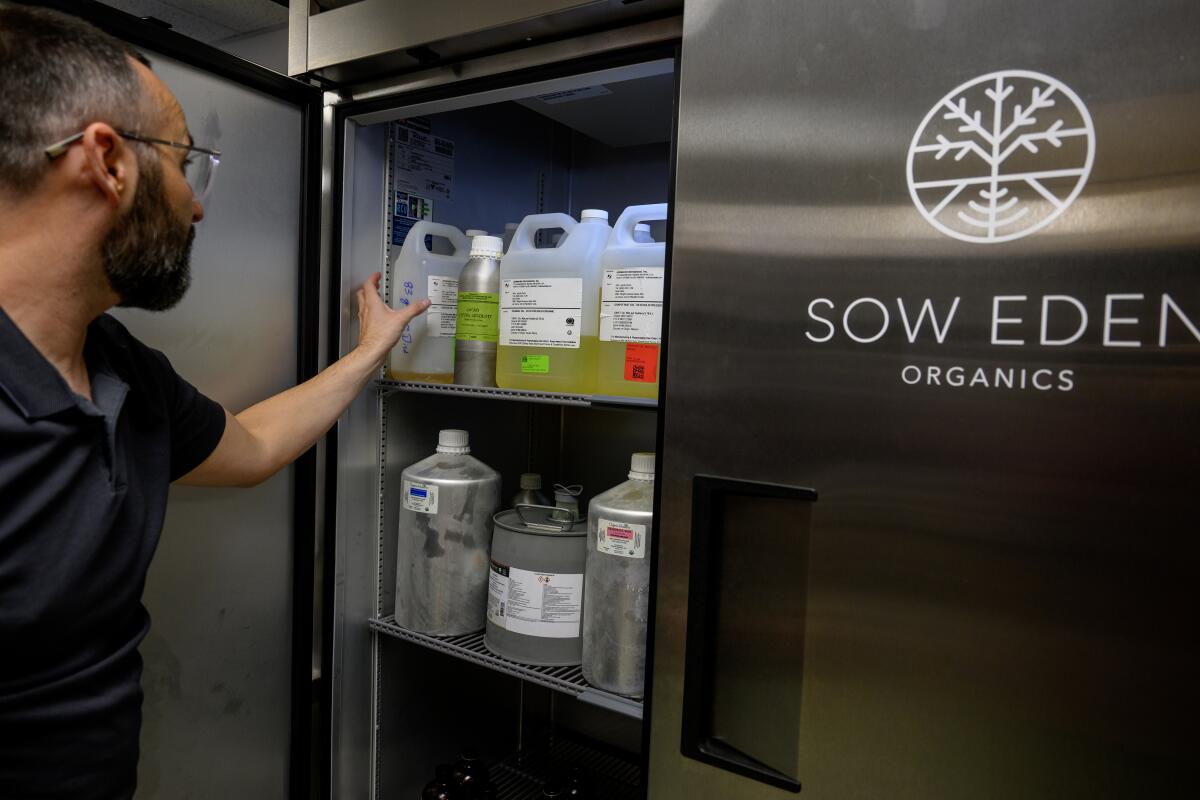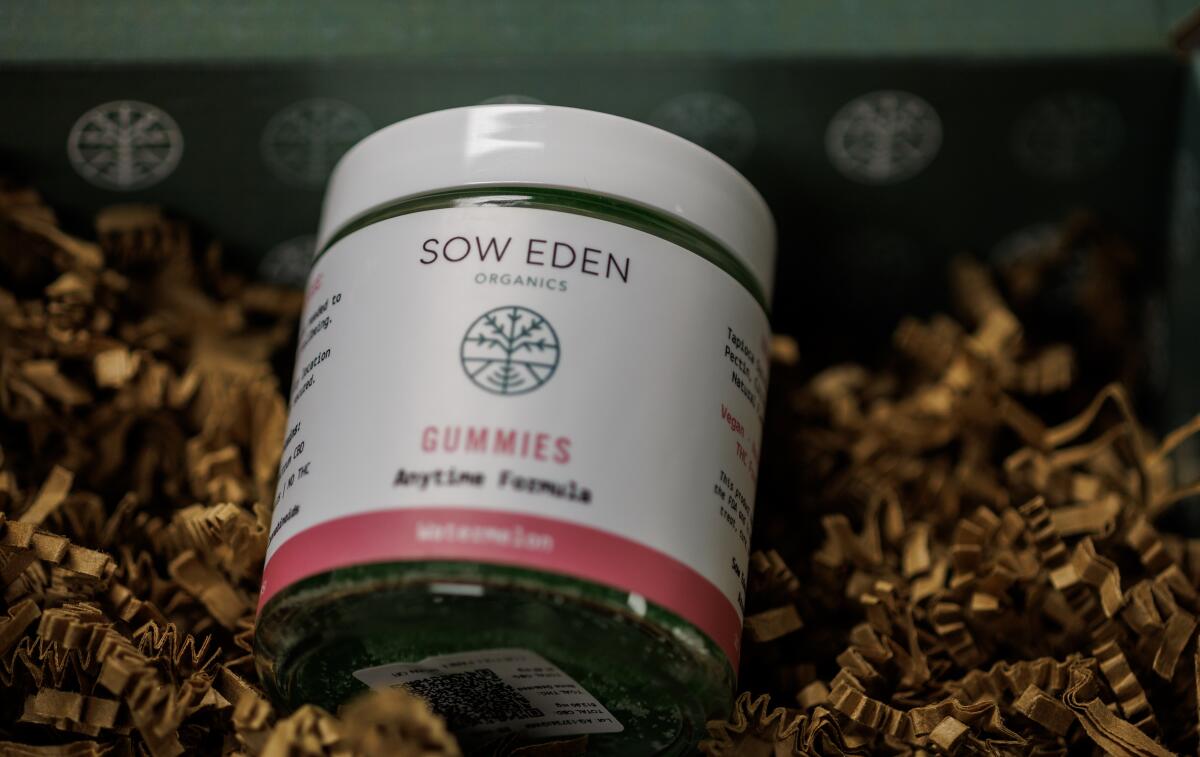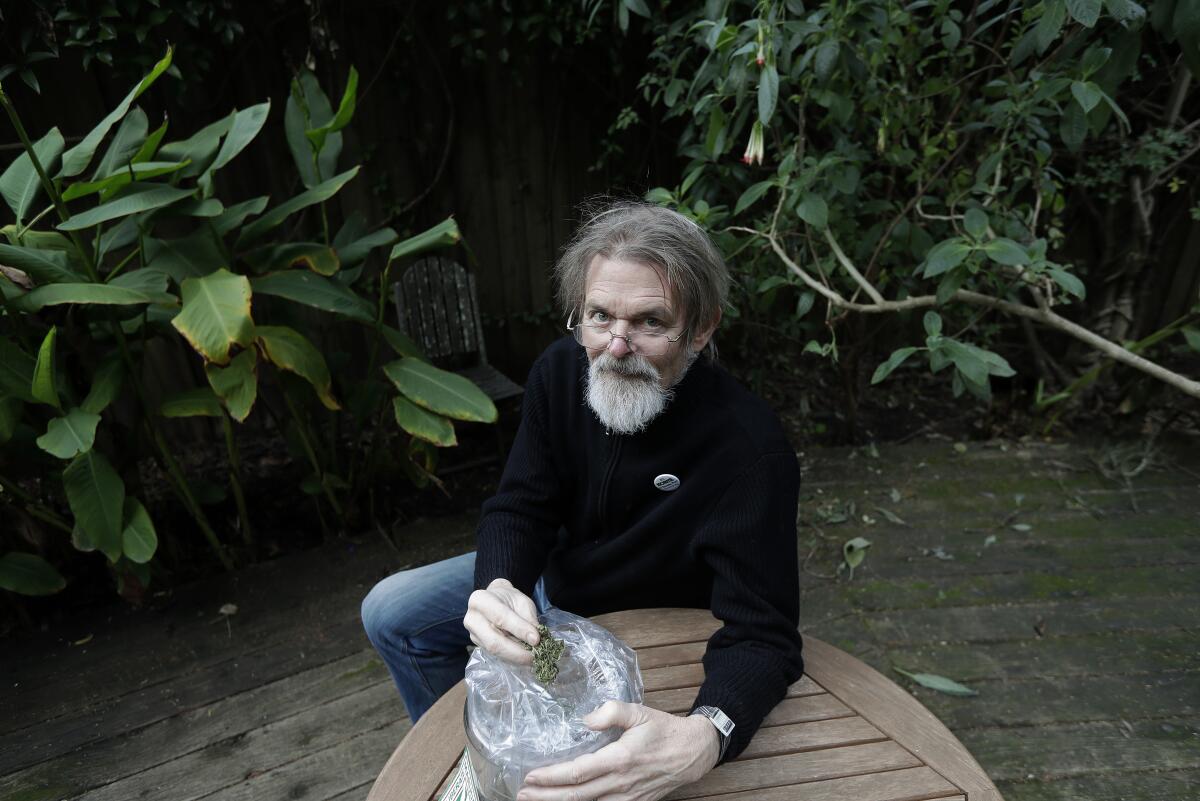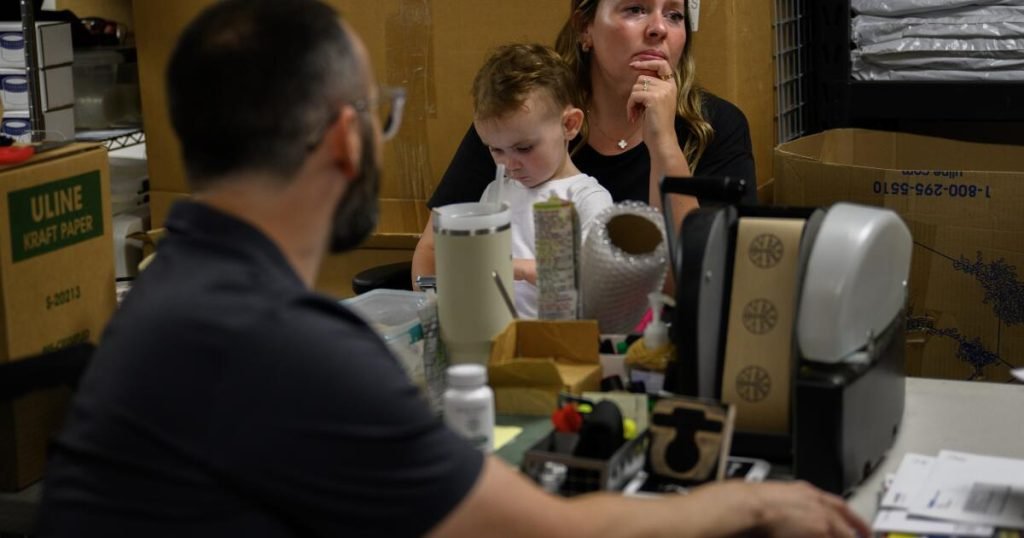Earlier this month, Gov. Gavin Newsom proposed new emergency restrictions on California's hemp industry, citing an urgent need to protect children. He is concerned about a range of loosely regulated products that contain intoxicating concentrations of THC, the compound known to cause the marijuana high.
While many agree some changes are needed, many business owners and consumers worry the governor's new rules are too strict and will stifle a nascent industry that is becoming mainstream.
Critics: Proposed Regulation The bill would effectively ban a wide range of popular tinctures, capsules, beverages and other products derived from industrial hemp, including those based on CBD, a non-intoxicating analog of THC.
These products range from mild CBD sleep gummies to potent THC-infused drinks and are growing in popularity. Though they may have similar effects, these hemp-based products are different from the cannabis-derived THC-containing products sold at many licensed dispensaries.
Hemp products are widely sold in liquor stores, gas stations and tobacco stores, which the governor cited as one of the main concerns prompting the move.
Governor Newsom announced the state's emergency regulations on September 6th after a bill to regulate the cannabis industry was rejected by the state legislature. The regulations are still under administrative review, but if enacted, it would be illegal for any cannabis product to contain any “detectable” amount of THC.
The proposed rule would also ban a list of about 30 “look-alike” compounds known as cannabinoids, some of which occur naturally and some which are synthetic chemicals that mimic the effects of tetrahydrocannabinol (THC).
Many cannabis industry advocates agree that rules need to be tweaked to ensure products are safe and available only to adults, but say Newsom is going too far with his zero-tolerance stance.
Among them are Jacob and Lindsay Dunn, owners of Saw Eden Organics, which operates out of a small space in La Verne, making, packaging and shipping industrial hemp-infused gummies and tinctures that customers ingest to improve sleep or relieve pain, anxiety and other ailments.
The Danns, who have a 2-year-old son and a baby on the way, first met 10 years ago when Jacob was selling CBD capsules to medical dispensaries from his kitchen table. Today, they do about $500,000 in total annual sales, but Jacob said the new rules could cut that figure in half overnight because many of their products contain low doses of THC.
For example, Saw Eden's popular sleep gummies contain 2.5 milligrams of the compound per gummies. Many recreational cannabis products contain 5 to 10 milligrams or more per gummies.
Jacob Dunn has some Saw Eden relaxation gummies.
(Gina Ferrazzi/Los Angeles Times)
“This is a small, family-run business,” Lindsay Dunn said Monday. “I don't know if we can launch a new product right now. It's a big deal. It would cost us a huge amount of money.”
Newsom's office and the state's Bureau of Cannabis Control referred questions to the California Department of Public Health, which said the emergency regulations were in response to “an increase in health concerns associated with addictive cannabis products identified by state regulators for sale throughout the state.”
The department said it has “received an increase in complaints about illegal and addictive industrial cannabis products in retail environments.”
If approved by the state's Office of Administrative Law, the emergency regulations will be in effect for at least 180 days. The governor said that once the regulations go into effect, any products found to be in violation will have to be removed from store shelves immediately.
Both marijuana and THC are heavily regulated under federal law, but hemp, a low-THC variety of the cannabis plant long used for commercial products such as paper and rope, got a boost from the 2018 Farm Bill, which loosened federal regulations.
Across the country, states are trying to figure out how best to address growing interest in consumer products that contain hemp-derived THC.
Some states are embracing the trend: Minnesota projects that hemp beverages could eventually generate $200 million in annual sales, and the state has instituted registration and testing requirements. Minneapolis Hemp Drinks Festival In June, the company made dozens of different brands available for sampling by the public. The flyers on the premises stated that the store was “non-smoking.”
Advocates argue that this approach allows the industry to continue to grow and thrive while restricting adult access.
In Missouri, a lawsuit Prompted states to back down Less than two months after the announcement, Gov. Mike Parson issued an executive order regulating cannabis products, with new restrictions also taking effect in New Jersey. Facing legal challenges.

Jacob Dunn keeps his Saw Eden essential oils in the fridge as he worries that Gov. Gavin Newsom's proposed new restrictions on the cannabis industry could cut his company's sales in half.
(Gina Ferrazzi/Los Angeles Times)
Companies that produce hemp products say the strict ban is a mistake.
“This is devastating for a lot of people,” said Christopher Lackner, president of the Hemp Beverage Alliance, a Colorado-based industry group.
“Why is this controversial?” he said. “Regulate it, put it on the shelves next to beer and wine and soda, put age restrictions on it, tax it like an adult beverage and regulate it like an adult beverage. And everybody wins.”
Ajay Narain, CEO of Beacon Beverages, based in Campbell, near San Jose, said his company pivoted from alcoholic drinks to mocktails infused with hemp-derived THC and CBD in February.
Business started slowly, but boomed once Beacon's non-alcoholic Key Lime Margaritas and Gin & Tonics started appearing on the shelves of major retailers like BevMo and Total Wine & More.
Now, Narain says he worries that Newsom's “absurd” new restrictions will effectively “kill the industry” across the state.
“A lot of businesses will go out of business,” Narain said. “He's pulled the rug out from under them. And again, this is totally unnecessary. It should be regulated, not abolished.”

Across the country, states are struggling with how to handle growing interest in consumer products infused with hemp-derived THC.
(Gina Ferrazzi/Los Angeles Times)
In 2021, Governor Newsom approved a state law limiting the total THC concentration in hemp-containing foods, beverages and cosmetics to 0.3% and dictating how such products must be tested and labeled.
But Governor Newsom and administration officials allege that many companies are taking advantage of loopholes to sell products containing intoxicating THC in places where minors can purchase them.
On a recent Tuesday evening, canned beer in flavors like lemon lavender and mock old fashioned cocktail was prominently displayed at the end of an aisle near the front of a Torrance BevMo store. Beneath the row of each drink was a sign in bold letters reading: “Infused with THC.”
A study published this month by BDSA, a Colorado-based company that analyzes data on the cannabis and hemp industries, noted that these products have carved out a “profitable niche market that avoids many of the challenges facing the regulated cannabis industry.”
“Unlike cannabis products, these products can be manufactured, distributed and sold with minimal legal hurdles, making them popular commodities,” the report said.
Some groups, such as the California chapter of the National Organization for the Reform of Marijuana Laws (Cal NORML), argue that Governor Newsom is right to curb everyday retail sales.
But they also say non-addictive products would be outlawed, and they denounce the harm the proposed regulations would cause to people with medical and psychiatric problems who benefit from the products.
“We fully support removing addictive cannabis products from the retail market, but they're going too far. They're going after non-addictive cannabis medicines that have been widely used for years,” said Dale Gearinger, director of the California Normal Research Lab.

Dale Gearinger of California Normal Research Magazine said the proposed regulations could negatively impact people with medical and psychiatric issues who benefit from non-addictive products that have “been widely used for years.”
(Jeff Chiu/The Associated Press)
Ted Whitney, chief beverage officer for Danville-based Cheech & Chong Global Holdings Inc., which sells recreational marijuana products and intoxicating hemp-containing products, said without imminent changes, hemp could become a nine-figure industry within 10 years.
It remains to be seen whether the state can deliver on that optimistic prediction: Its recreational marijuana market is struggling compared to some states, with illegal dealers depressing prices and stifled by high taxes and red tape.
Whitney argued that cannabis, like other opioids, is safer than other common products like tobacco and alcohol. He said the best way to keep kids safe and grow the state's economy is to take a more cautious approach.
“We can improve safety, improve regulation and improve revenue,” he said. “Let's make this a win-win, not a lose-lose.”







